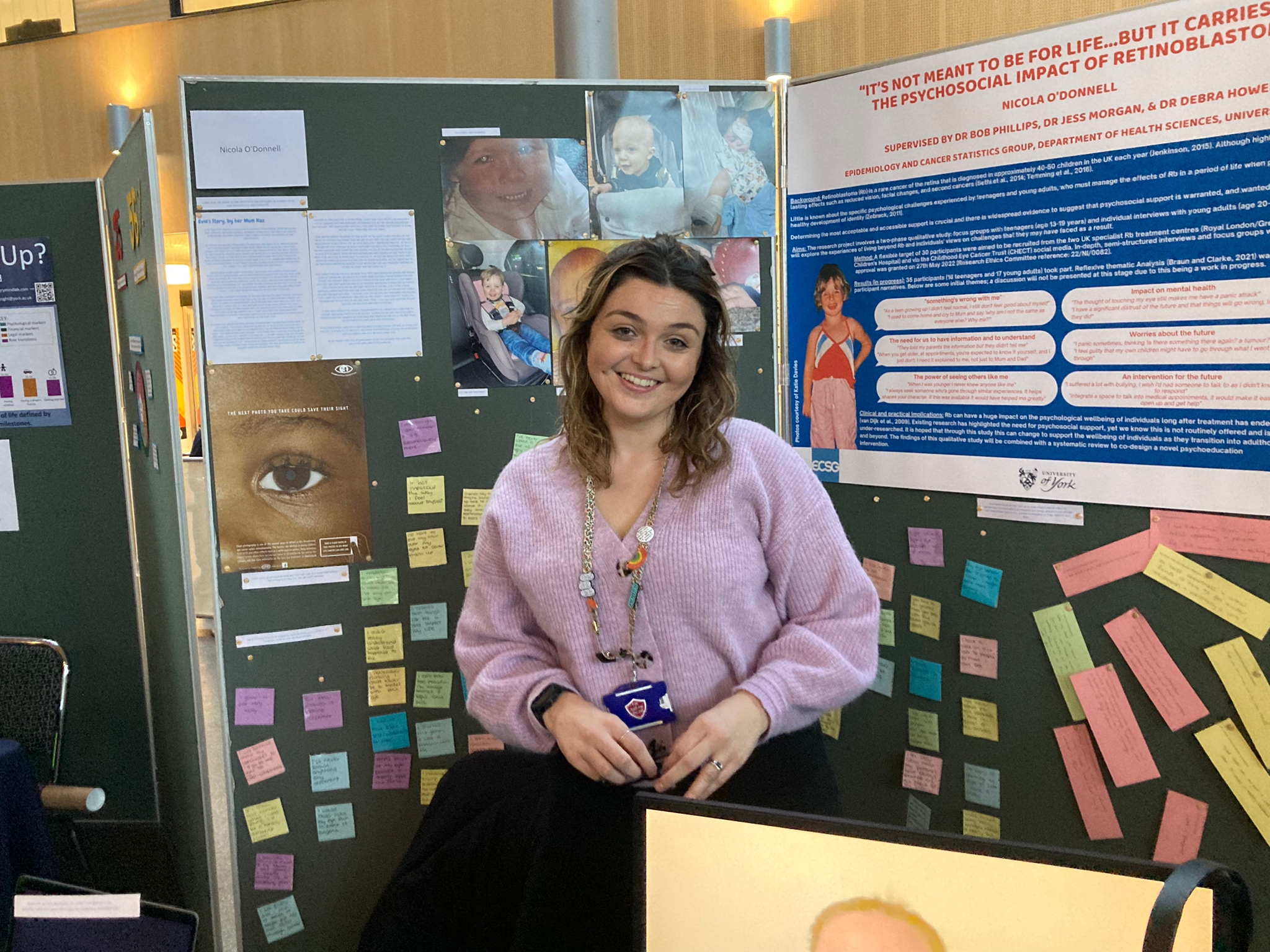Retinoblastoma researcher reaches finals
 A postgraduate student investigating the psychological and social effects of childhood eye cancer has created an interactive installation to show what the experience is like.
A postgraduate student investigating the psychological and social effects of childhood eye cancer has created an interactive installation to show what the experience is like.
Nicola O’Donnell worked alongside families affected by retinoblastoma to develop the exhibit, inviting people to study photos of children before diagnosis to look for symptoms. The audience listens to a children’s cancer doctor talking to parents about next steps after a diagnosis and experiences the intensity of people constantly looking into their eyes. The project reached the finals of the University of York’s PhD Spotlight competition.
Nicola’s research is funded by the Childhood Eye Cancer Trust. She said: “We also came up with the ideas of walking through a ‘sea of thoughts’ about what it is like to be a teenager who had retinoblastoma, trying on visual impairment simulation glasses and trying to do an everyday task.”
The installation included a video about the experiences of children and parents living through a retinoblastoma diagnosis, treatment, and beyond.
Retinoblastoma is a rare cancer that affects around 50 babies and children in the UK every year. Although 98% survive, most are left with a permanent visual impairment. Around half of affected children will lose an eye and a few are left completely blind.
Nicola said: “My take home learning was how much more we need to talk about childhood cancer. Understandably, it’s not a topic people like to consider, it’s sad and scary. Unfortunately, it happens to families every day who must live with the sad and scary.
“By having uncomfortable conversations, we can raise awareness, create support, and increase crucial funds: unbelievably little funding goes into childhood cancer.”
The installation came fourth in the competition, after being picked from over a hundred applications. For more information about retinoblastoma and its signs and symptoms, visit CHECT